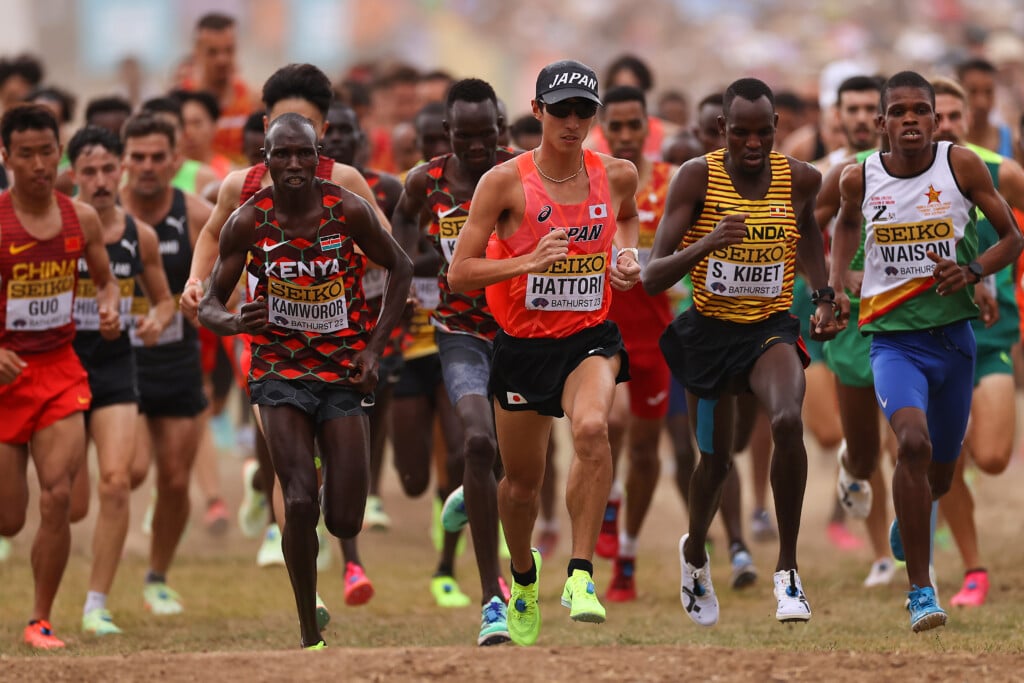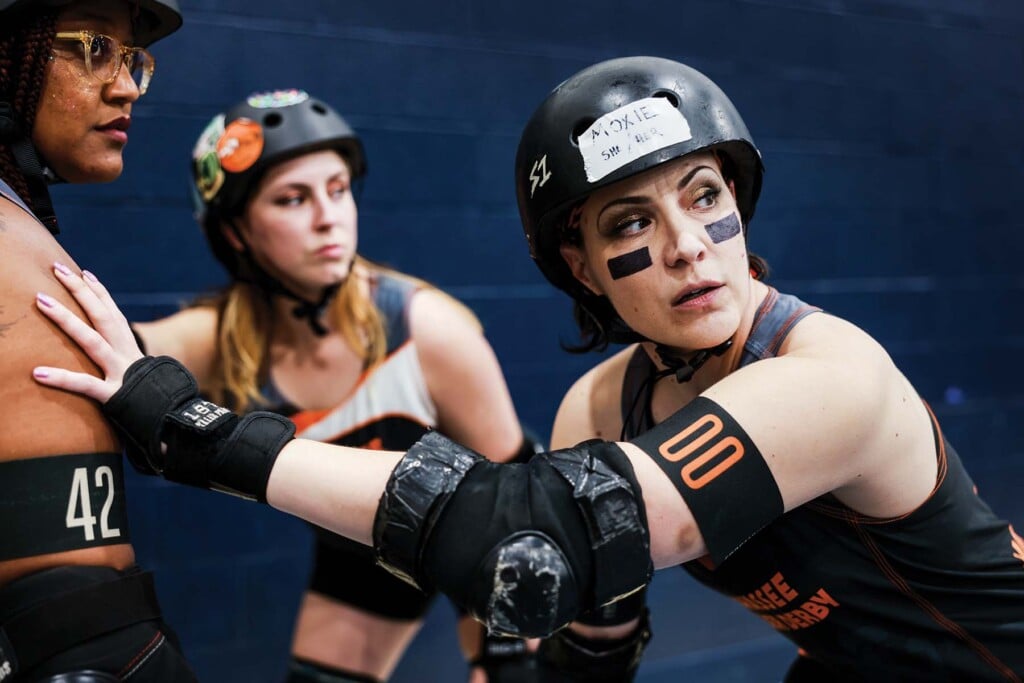Full Moon Rising
Yoga leads Punam Bhakta to self-acceptance

Born in California to immigrants from India, she moved with her family as a child to Tallahassee and was reared in a household that was given to few American influences. Both English and Gujarati, a language native to the Indian state of Gujarat, were spoken in the home.
Her parents worked in the hospitality and restaurant industries and practiced yoga, an activity that Bhakta — her name means full moon — dismissed as nonsense, wholly rejecting the notion that she might benefit from it.
“You don’t always permit yourself to like what your family does,” she said.
More pointedly, Bhakta didn’t like who her family was. In Florida, she had come by a desire to assimilate and to push down her culture and traditions.
After graduating from high school, she enrolled at Florida State University and tried on several majors without finding one that was right for her.
“Like every Indian, I tried to do health care because I thought I should,” Bhakta said. “That’s a big part of the story of my life. I thought a lot of my life was about should.”
Bhakta was an FSU student when she landed a job working as an assistant at an optometry practice. She managed the front desk, handled administrative duties and correspondence, became proficient on machines including an autorefractor and a tonometer, learned the electronic health record system and accompanied doctors on prison visits where they performed eye exams.
It was in prison that Bhakta began to find herself.

Photo by Saige Roberts
She discovered that she was keenly interested in learning more about prison life. She quit school, satisfied that she was finding something that she had always subconsciously wanted to do.
Bhakta estimates that half of the inmates she met had never received health care.
“Yes, a lot of them had made bad decisions,” she said. “They were so grateful that someone came out to see them. It was a hard job, but it is the one that I am most proud of. It made me see that if you have never been exposed to health care, you probably don’t know much about self-care.”
Bhakta was developing an appetite for public service. She quit school and worked for the optometry office for a total of four years while continuing to work to define her career.
She was employed as an educator at the Tallahassee Museum and as an assistant consultant at the Florida Medical Licensing Service.
In 2018, she went back to school as a business administration major at Flagler College’s satellite operation in Tallahassee and graduated a year later.
“I feel like Flagler is a hidden gem, and for people who want to pursue their degree while continuing to work, it’s a great way to open up more opportunities,” Bhakta said. “And that’s what it did for me.”
Flagler, like the prison, served Bhakta as an incubator, and she moved closer to pecking her way out of a self-imposed shell.
That evolution accelerated when, after earning her business degree, she joined the City of Tallahassee’s Office of Diversity and Inclusion as an administrative specialist.
“That is where I really started to understand that I was serving my purpose,” Bhakta said. “We did trainings, and a big part of what we focused on was one’s roots. Knowing who you are is a big part of emotional intelligence, along with addressing your highest needs, accepting who you are and digging deep to understand your biases and why you think the way you do.”
Bhakta found within herself a desire to help people feel accepted. She applied lessons that she learned while working for the city to the community of immigrants in Tallahassee — and to herself.
She let go of her resistance to her ethnicity and essence. Her long path toward self-acceptance was at last reaching a destination, and she opened herself to yoga.

Punam Bhakta in traditional Indian attire. She is the daughter of immigrants from India and grew up in a household where both English and Gujarati — a dialect from the Indian state of Gujarat — were spoken. Photo by Saige Roberts
“Listening to trainings about introspection, dealing with other people and learning to get along, I really wanted to take my own personal development to the next level,” Bhakta said.
Yoga at first served Bhakta as a way to stretch and exercise, a practice she carried out purely on a physical level. Then, in the midst of the pandemic, she met Ashley Thesier, who owned a yoga studio on Thomasville Road at the time.
Thesier introduced Bhakta to an approach to yoga that was more dimensional than she was used to, a more holistic and authentic approach, one that included chanting of mantras.
“I felt at home, and I started embracing my Indianness,” Bhakta said. “I started accepting that part of me. Yoga is something that Americans are doing. I asked myself, ‘Why shouldn’t I honor these practices? Why am I embarrassed about my culture?’”
“Punam seemed rather overwhelmed with life when I first met her,” Thesier said. “Like many other students, she had only the vaguest idea of what kind of spiritual journey she was about to embark upon and the soul work involved. But given her culture and heritage, she was better equipped than others to grasp some of the more esoteric teachings.”
Working with Thesier, Bhakta found her authentic voice and a greater connection with her inner self.
“After 200 hours of training together, it didn’t matter if her teaching style was perfect or if she could hold yoga poses with precision. The true teachings of yoga are demonstrated through our being, not our doing, and by the end of our time together, she understood that profoundly.”
Today, Bhakta is a consultant with the Canopy Management Consulting Group, a business founded by Brian Swords and Damon Steffens, former state Department of Economic Opportunity employees who exited that experience with confidence that they could contribute to making state agencies more efficient.
“It could be about financial restructuring, change management or cost analysis,” Bhakta said about her work with Canopy. “Or it could be about saving money or making teams work better together.”
“She is the friendliest person I know,” Swords said. “You couldn’t ask for more in an employee. She takes care of our client relationships, seeing to it that clients are seen and heard and get what they need. And there is no limit to her appetite for learning.”
Bhakta is also a certified yoga trainer who works with able-bodied people of sound mind and with people with Alzheimer’s disease at a respite center that is part of the Tallahassee Alzheimer’s Project.
“I absolutely love working with Alzheimer’s patients,” she said. “I focus on mobility and making their daily lives better. You may need to pick something off the floor or reach for something in a cupboard, or if you have grandchildren, you want to play with them. I challenge them physically and mentally and lead them through stretches.”
For anyone, Bhakta said, yoga is a way to get to know your body.
“You get into it, and you discover your crinks,” she said. “‘Oh, man, my neck hurts. I didn’t realize my left side hurts more than my right side.’ You start noticing separate parts of your body instead of thinking of it as one big clump.

Punam Bhakta sitting in a supported hero’s pose with her hands in a lotus mudra. Mudra is a Sanskrit term that means “gesture” or “attitude.” Mudras were characterized by ancient yogis as energy-flowing postures meant to connect individual life forces with universal or cosmic force. Photo by Saige Roberts
“As you start moving into it, different emotions come up and different stories surface. You’re working through all of that, and that’s where the next big element in yoga comes in — your breathing.”
Noting that people tend to hold their breath in uncomfortable situations, Bhakta said that yoga helps people move through such circumstances by breathing and trusting themselves.
“I know that if I can hold an uncomfortable yoga pose, then I can get through the next five seconds of whatever I am experiencing,” she said. “Maybe it is an awkward silence in the middle of a meeting or someone has cut me off in traffic.”
Bhakta practices Hatha yoga, which originated in India during the 11th century and was used in efforts to preserve and channel vital life force or energy. As of the 20th century, hatha yoga has focused on physical postures called asanas.
“Listening to my body, I started to notice body cues,” Bhakta said. “When my body started loosening, it was like a car. When you lubricate the engine, it runs a lot better. I started feeling better because I wasn’t constantly in pain. There was a lot of gratification in conquering little challenges along the way. You are not competing against anyone. You don’t have to compare yourself to others. You are free to focus on how it feels for you.”
Bhakta advises anyone starting out in yoga to go slowly.
“Do what’s right for you versus what you think you should do,” she said. “Get out of your head and into your body.
“And be prepared to make some mat friends.”


